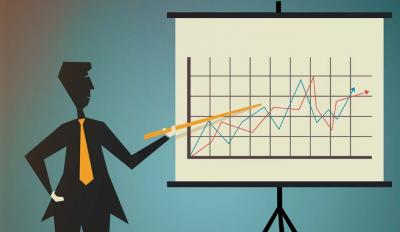The Glaring Gender Gap in Entrepreneurship
- BY Shreyasi Singh
 In People
In People 10317
10317 0
0

The Global Entrepreneurship Development Institute with support from Dell Women’s Entrepreneur Network recently releases its second edition of the The Gender Global Entrepreneurship and Development Index (GEDI), a 30-country analysis of the conditions that foster high-potential female entrepreneurship.
Built upon the same theoretical framework as the 2013 Gender-GEDI—measuring entrepreneurial environment, ecosystem and individual aspirations, and scoring nations on a scale ranging from 0 to 100—this year uncovers the following key findings: The United States (with a score of 83), Australia (80) and Sweden (73) are the top ranking countries in the 2014 Gender-GEDI. They are followed by France and Germany (tied at 67), Chile (55), the United Kingdom (54) and Poland (51) which all received an overall score of 50 or more. Twenty-two countries received an overall Gender-GEDI score of less than 50 out of 100, indicating that many of the fundamental conditions for high potential female entrepreneurship development are generally lacking in the majority of countries.
“While there are bright spots and room for optimism, the overall picture points to an urgent need for change. The world cannot prosper without the economic participation of women. It is our fervent hope that this research will help to inspire and guide action that will lead to a brighter future for women entrepreneurs everywhere,” says Charlotte Deal, director of Dell’s Women’s Initiatives.

Globally, women and men are not on a level playing field in terms of access to resources, which continues to impact women’s ability to start and grow businesses. The Gender GEDI focuses specifically on identifying and assessing the gendered nature of factors that, if addressed, could allow high potential female entrepreneurs an equal chance to flourish. The Gender GEDI Index results distill the most important issues for policy makers, governmental officials and other decision makers interested in improving the conditions for high potential female entrepreneurship development.
Not surprisingly, the South Asia region which includes Bangladesh, India and Pakistan were all low performers in the index with India ranked highest at 26. Though most score averages are low, one of the strengths in this region is the relatively higher score for the female Entrepreneurial Environment sub-index. In India, the report found that six out of 10 women have identified opportunities to start businesses. More than half (52 per cent) felt they have the skills to do so, with 57 per cent saying they do not fear failure in starting a business. Interestingly, when it comes to start-ups, there is moderate female start-up activity ratio of 5.2/10. The index pointed out one more strength of India—a relatively well developed equity capital markets.
Key issues that affect gender
At first glance, the Gender-GEDI results may seem directly linked to a country’s economic development and GDP levels. However, a number of countries do not fit this pattern. For example the United States (#1), Chile (#6), and Nigeria (#23) have relatively higher scores on the Gender-GEDI in relation to their per capita GDP while the United Kingdom (#7), Turkey (#18) and Pakistan (#30) have a relatively lower Gender-GEDI score with relation to their level of per capita GDP.
Though GDP plays a role in creating favourable conditions for female entrepreneurship development, other issues also have an impact. Specifically, results show that the conditions for high potential female entrepreneurship development are hampered in the following ways for 30 country sample: 73 per cent countries exhibit female labour crowding; 73 per cent countries limit legal rights for married women; 27 per cent countries limit women’s access to property; 23 per cent countries restrict women’s access to public spaces and in 23 per cent of countries at least half of the female population is unbanked. In addition, regardless of GDP levels, the Gender-GEDI Index results indicate low levels of high growth oriented female startups and female tech sector startups throughout the 30 countries in sample.


























Add new comment